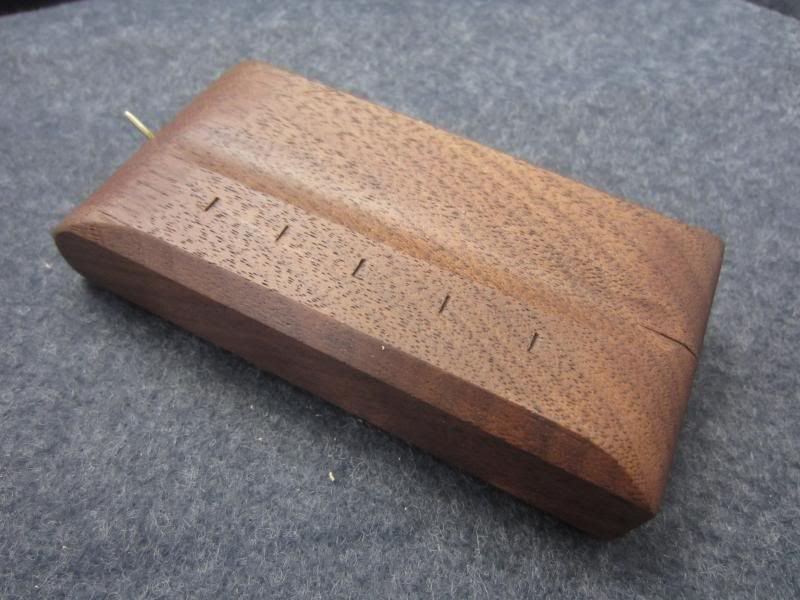Post
by gingerdun » Wed Jul 30, 2014 9:59 am
Ray,
Very interesting post and video, and good discussion from William and all.
As William says, the pant leg method that your cool block imitates is helpful if the goal is a tighter noodle with the fibers parallel to the thread.
The alternative method I use, on the hard-surface Clark block is this:
1. After doubling the waxed thread on top of the dubbing, and while the loop is still anchored by the post on the block, I lift the threads up and start twisting to trap the dubbing.
2. Then I moisten my finger tips, and while holding the end of the "rope", I pinch-rub the dubbing back and forth between my fingers to get it to lie down tighter on the waxed thread.
3. Then I continue spinning the body. This makes a leaner, more streamlined noodle.
4. Before wrapping the body around the hook, I sometimes will pinch and rub the dubbed part back-and-forth between my wetted fingertips again to get them to lay down.
I admit that I have been partial to the shaggier effect when the dubbed fibers stick out more perpendicular to the thread. After wrapping the body on the hook, and then adding ribbing, the fibers are less shaggy, and may require pulling out with a needle or velcro to get the leggy, transparent effect that has been working for me.
My experience has been that preparation of the dubbing fibers, and how heavily you lay them on the thread, are equally important to the final look of the body, regardless of how you spin them. I've been using mostly embroidery wool lately, cut up into varying lengths from 1/8 to 3/8". This helps a lot to make the body more manageable.
If I want to give it a haircut, I do that after I lash the body to the bend of the hook, while gripping the other end in the hackle pliers. Then I have a good view and good control for trimming unruly fibers, and helping to shape the taper.
Obviously there are many ways to do this, and no one right way. It all depends on the look you want in the fly.

